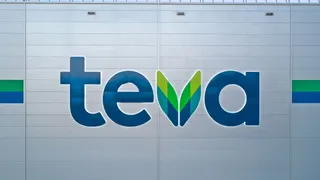India considering new patent filing rules
India is considering altering its requirements for filing drug patents in a bid to create more transparency in the pharmaceutical market, it has been claimed.
The Indian Patent Office (IPO) is thought to be considering a proposal which would make it mandatory for drug firms to disclose the International Non-Proprietary Name (INN) of a drug when applying for a patent.
If the proposal is accepted, India would become the first country in the world to implement the procedure.
An INN, which is handed out by the World Health Organization is a generic name given to a pharmaceutical substance and are designed to be unique and distinct to avoid confusion.
However, they have been concealed from patent applications in the past in a bid to discourage oppositions and challenges to patent validity.
It is thought the changes will make it easier for patent examiners, generic drug makers and public health groups to block frivolous patents from being granted.
It will also make it difficult for innovator drug firms to get patents for incremental innovations, which do not show any enhancement in efficacy of an existing method.
An anonymous “official” at the IPO has been quoted in the The Economic Times of India, as saying it is "currently consulting key stakeholders on the feasibility of mandating disclosure of WHO-assigned INNs in pharmaceutical patent applications, wherever applicable.”
The official adds that a final decision has not yet been taken on the matter.
According to Ashwani Balayan, partner at ALG India Law Offices in New Delhi, India, the provisions would “go beyond” an applicant’s obligations and would clearly set up an “additional burden.”
“Identification of the corresponding INN only helps out the examiner in its job of determining the novelty and inventiveness,” Balayan said.
“By doing this it appears that the IPO, instead of upgrading its workforce and infrastructure, is attempting to pass-on some of its searching responsibilities directly on to the applicants.”
Balayan added: “I am of the view that the lack of applicant’s knowledge of the corresponding INNs and/or failure to disclose all the requisite INNs in respect of some or all of the involved substances … therein cannot and should not be prejudicial … to the applicant’s rights in the invention in any manner.
“That being so, such a requirement should not be made mandatory.”
The news comes at a time when the Indian patent regime is under the spotlight and has faced criticism from the US and Europe for some of its recent decisions.
In March 2012, it granted its first compulsory licence, allowing local manufacturer Natco to legally make and sell a low-cost version of Nexavar, a drug made by German pharmaceutical company Bayer used to treat kidney and liver cancer.
Earlier this year, the Supreme Court ruled that Novartis’ cancer drug Glivec was not significantly more effective than alternatives and that its active ingredient was already known, denying it a patent.
In September, LSIPR reported that The Alliance for a Fair Trade with India, a specially formed coalition, had written to US President Barack Obama urging him to address India’s drug policy with the country’s Prime Minister Manmohan Singh.
The IPO was not available for comment at the time of writing.
Already registered?
Login to your account
If you don't have a login or your access has expired, you will need to purchase a subscription to gain access to this article, including all our online content.
For more information on individual annual subscriptions for full paid access and corporate subscription options please contact us.
To request a FREE 2-week trial subscription, please signup.
NOTE - this can take up to 48hrs to be approved.
For multi-user price options, or to check if your company has an existing subscription that we can add you to for FREE, please email Adrian Tapping at atapping@newtonmedia.co.uk

